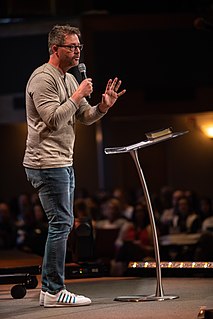A Quote by Neal Brennan
If you're into social justice it's hard not to be on black people's side.
Quote Topics
Related Quotes
As a black person on the outside, because there's so much black art and so much of black people's work circulating, so many people imitating what black people do, you would think that there'd be more black people on the business side. It didn't cross my mind that every label head, for the most part, is a white guy.
In its pursuit of justice for a segment of society, in disregard of the consequences for society as a whole, what is called 'social justice' might more accurately be called anti-social justice, since what consistently gets ignored or dismissed are precisely the costs to society. Such a conception of justice seeks to correct, not only biased or discriminatory acts by individuals or by social institutions, but unmerited disadvantages in general, from whatever source they may arise.
While our heart for social justice grows out from the gospel, social justice by itself will not communicate the gospel. We need gospel proclamation, for as much as people may see our good deeds, they cannot hear the good news unless we tell them. Social justice, though valuable as an expression of Christian love, should, especially as a churchwide endeavor, serve the goal of gospel proclamation.
Since ancient times, the left side has stood for the side of the unconscious or the unknown; the right side, by contrast, has represented the side of consciousness or wakefulness. Through the late twentieth century, the movement of the Left limited themselves to a materialist understanding of reality- exemplified by Marxism- demanding social justice and economic equality but not the restoration of intuition and the recognition of the hidden, qualitative dimensions of being suppressed by the mental-rational consciousness, narrowly focused on the quantifiable.
My passion today is not only justice for the Black man and woman of America, but for all those who cry out to the Supreme Being for justice in their lives - and that's Black, Brown, Red, Yellow and White, for the whole of humanity has been deprived of that which The Creator has ordered for us, and that is freedom, justice, equality, and submission to the Will of Allah.
The street is as diverse as any other sector, but in peoples' mind it gets appropriated as a black man who's tough. Trying to make it through by staying hard and phallocentric. To me, that is just an impoverished conception of what it is to be a black male. It doesn't do justice to my grandfather, my father, my brother - or just the black men I grew up with.

































